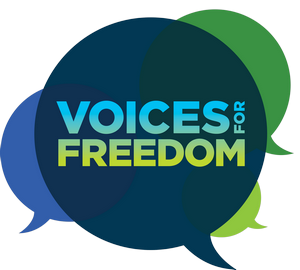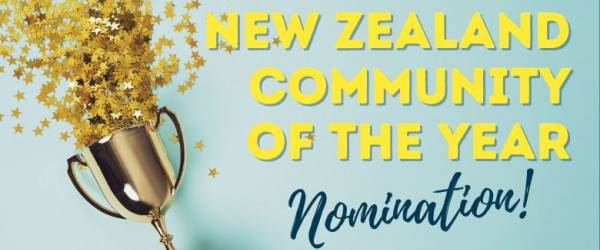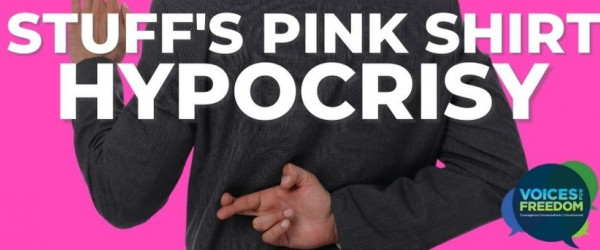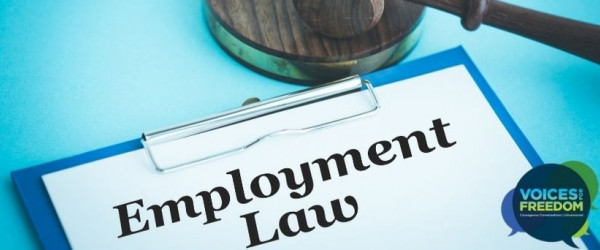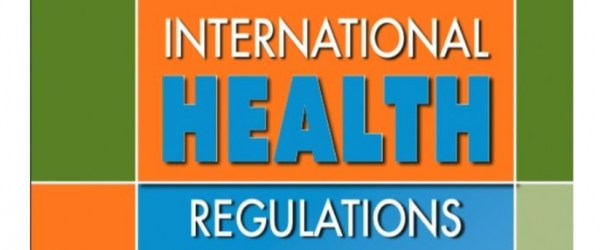
‘WHO’ To Trust
The Amendments to International Health Regulations and the Pandemic Prevention and Preparedness Treaty
GUEST POST by New Zealand Lawyer, Kirsten Murfitt. E: admin@kmlaw.co.nz
The proposed amendments to the International Health Regulations (“IHR”) and the Pandemic Prevention and Preparedness Treaty (“the Treaty”) will galvanise the World Health Organisation (“WHO”) as the singular controlling authority and architect of global health. Individual nations will surrender their sovereignty to unelected bureaucrats with discretionary powers to lock down their citizens and economy for any potential or actual public health emergency of international concern. We will be at the hands of a Director-General who was indicted before the International Criminal Court for war crimes and at the mercy of an advisory panel led by Helen Clarke.
The Bill of Rights Act 1990 is one of the most important pieces of legislation in New Zealand to protect and promote human rights and fundamental freedoms. However, human rights and fundamental freedoms have collapsed under immense political pressure since late March 2020.
How will the IHR and Treaty further impinge on New Zealander’s rights and freedoms.
An overreaching government has already demolished the democratic process in New Zealand. Legislation is being passed without conventional parliamentary scrutiny, designed to protect against abuse of power. Two examples include the government changing legislation in defiance of a High Court ruling and refusing to consult with the public concerning Three Waters. Now the government is set to adopt the IHR and give away our sovereignty with no discussion – let alone transparency.
The adoption of the IHR amendments threatens our sovereignty, and the proposed Treaty has the potential to lead us into a biosecurity regime and social credit system with digital ID and international vaccine passports,which will only remain valid if you take the latest booster.
Most New Zealanders are blissfully unaware of the looming meeting of the World Health Assembly (“WHA”) between 22 to 28 May 2022. Any media coverage of the meeting is sparse. Likewise, the government’s spin doctors are unusually quiet – despite the threat of our local laws being overridden if the IHR amendments and Treaty are adopted.
The WHA (the decision-making body of WHO) will meet to:
- decide whether to ratify the amendments to the IHR; and
- discuss what should be included in the proposed Treaty – rather than debate the merits and ramifications of establishing such a treaty.
Currently, WHO is the only institution in the world that can declare a pandemic or a public health emergency of international concern (“PHEIC“). In late January 2020, the WHO exercised its powers and declared that the COVID-19 outbreak constituted a pandemic under the current IHR. This declaration resulted in over two years of global lockdowns, border closures and mandates.
BACKGROUND
In May 2020, the `Independent Panel for Pandemic Preparedness and Response’ (“IPPPR“) was quietly set up by the WHO. Helen Clark and former Liberian President Ellen Johnson Sirleaf were selected to head the panel.
In December 2021, the IPPPR released a report with its “recommendations for strategic action to end the pandemic and ensure that future infectious disease outbreak does not become a catastrophic pandemic”. The IPPPR’s recommendations included:
“WHO to establish a new global system for surveillance, based on full transparency by all parties, using state-of-theart digital tools to connect information centres around the world and including animal and environmental health surveillance, with appropriate protection of people’s rights… [The Treaty should possess] An adaptable incentive regime, [including] sanctions such as public reprimands, economic sanctions, or denial of benefits.”[1] Some may argue that an authoritarian regime is necessary for global pandemic management. New Zealanders should question the merits of stripping decisions from our democratically elected government and transferring such powers to a centralised authority. With 193 member states, the WHO would have power over 99.44% of the world’s population.
We should also question why the WHO wants to link environmental health to pandemic or PHEIC prevention?
One month after the IPPPR’s report was released, the Biden Administration submitted the proposed amendments [2] to the WHA. Surprisingly, the proposed amendments were not disclosed until April 2022 – approximately one month before the WHA meeting. The timing has contributed to the lack of public awareness and the amendments will likely be adopted by stealth.
If adopted, the proposed amendments will empower WHO’s Director-General, Tedros Adhanom Ghebreyesus (“Tedros“), to arbitrarily declare a health emergency in any member state, even if the targeted member state opposes the declaration.
It should be noted that Tedros was indicted before the International Criminal Court for war crimes committed against his fellow citizens in Ethiopia [3] . In addition, Tedros has strong links to the Chinese Communist Party [4] – many believe that he was put in his current position of Director-General of WHO as a direct consequence of that relationship.
AMENDMENTS TO THE IHR
By way of summary, the amendments to the IHR will result in the following:
- Tedros and regional directors may determine if there is a “potential or actual public health emergency of international concern” (Article 12) despite no definition of a health emergency. It should be noted that WHO quietly amended the definition of an influenza pandemic in 2008 to remove the two conditions; firstly, the condition that there “[was] enormous numbers of deaths and illness”, and secondly, there was a new and distinct subtype. In response to the change in definition, the British Medical Journal [5] article pointed out that the seasonal flu could be classified as an influenza pandemic;
- The source of information leading to the declaration does not need to be disclosed (Article 9);
- Each member state must intensify surveillance, and WHO will develop an “…early warning criteria for assessing and progressively updating the national, regional, or global risk posed by an event of unknown causes or sources …” (Article 5);
https://www.dailymail.co.uk/news/article-8199719/Dr-Tedros-Ghebreyesus-career-politician-running-China-centric-WHO.html and Who is WHO’s Tedros Adhanom? (williamengdahl.com)
[5] https://www.bmj.com/rapid-response/2011/11/02/who-changed-definition-influenza-pandemic- Each member state must assess risks and respond in 48 hours (and non-complying countries will be named, shamed and punished) (Articles 6,10,11 and 13), amongst other matters.
If the amendments are adopted, the member states have until November 2022 to reject them.
APPLICATION TO NEW ZEALAND
If the New Zealand Government does not formally reject the amendments within the 6-month timeframe, we will be deemed to have accepted the amendments in full (Article 59). It will no longer matter if we have a change of government in 2023, as New Zealand will have transferred unprecedented authority to the WHO.
The government must act democratically and debate the adoption of the amendments to the IHR in a public forum. We must demand the opportunity to understand the full ramifications of amendments and vote on whether New Zealanders wish to adopt the amendments or not.
New Zealand is a signatory to the current IHR. Dr Ashley Bloomfield stated that the WHO and China report influenced the ‘go early and go hard’ strategy. We now know that this approach was futile despite the damage to our health, mental health, businesses and the economy. Tedros stated in April 2022 that the pandemic (which includes the response) has resulted in:
[6] https://www.who.int/director-general/speeches/detail/who-director-general-s-opening-remarks-at-the-public-hearing-regarding-a-newinternational-instrument-on-pandemic-preparedness-and-response—12-april-2022“…countless livelihoods destroyed, health systems disrupted, already-vulnerable people pushed into poverty, and the global economy plunged into its deepest recession since the Second World War[6].”
Do you wonder what triggered the change of the narrative in the early days of 2020 from “wash your hands” and “masks do not work” to a national lockdown with few cases in New Zealand? Sue Grey, lawyer, obtained a copy of Tedros’s letter to Ms Ardern dated 23 March 2020 under the Official Information Act 1982. The extracts below speak for themselves:
Ms Ardern implemented the first national lockdown two days after receiving Tedros’s letter despite fewer than 100 probable cases.
THE PROPOSED TREATY
If the adoption of the IHR amendment threatens our sovereignty, will the proposed Treaty take matters a step further? For example, international vaccine passports,which will only remain valid if you take the latest booster? This idea is not as far-fetched as some may think, with the Digital Identity Services Trust Framework Bill currently in its second reading in Parliament [7] and ID2020 launching its Good Health Pass Collaboratively for a digital health pass system for global travel and the global economy [8].
However, until we see the draft text for the Treaty, we are only speculating. The draft text is expected to be released in August 2022. The Treaty is set to be adopted in 2023 and come into force in 2024.
The draft followed the illusion of public comment whereby the public could submit up to 250 words [9]. Unfortunately, the website crashed during the period of public consultation. It seems that the establishment of the Treaty has been predetermined, and lip service is being given to public consultation.
The proposed Treaty is concerning given that Tedros, in his opening address at the public hearing on the new instrument in April 2022, states and repeats that the guiding question is:
“What substantive elements do you think should be included in a new international instrument on pandemic preparedness and response? I repeat: What substantive elements do you think should be included in a new international instrument on pandemic preparedness and response?”[10]
Kings College of London has published the long list of wishes and expectations for the Treaty, which includes:
- “Anchoring the Treaty in human rights and address the principles of the right to health, equity, solidarity, transparency, trust, and accountability;
- Using a One Health approach for pandemic prevention and early detection;
- Stronger health systems information and reporting mechanisms; including a better use of digital technology for data collection and sharing;
- A reform of the WHO alarm mechanism, the public health emergency of international control (PHEIC) declaration process and travel and travel restrictions;
- Pathogen and genomic data sharing;
- Resilience to and response to pandemics, including universal access to medicines, vaccines, diagnostics, medical equipment and treatments as well as resilient supply chains, technology transfer;
- Investments in health system strengthening and increased financing for pandemic preparedness and response;
- Stronger international health framework with a strengthened WHO at the centre and increase global coordination;
- Reinforcing legal obligations and norms of global health security and standard settings of health care systems;
- Coordination of research and development (R&D).”[11]
Tedros, in his opening address, then went on to state:
“Ultimately, whatever instrument comes, this process will affect everyone. So, it’s vital that we get the widest possible range of inputs… Thank you all for your engagement at this historic moment.”
Multiple governments have committed to signing the Treaty, which will result in what Boris Johnston describes as a:
“One Health approach that connects the health of humans, animals and our planet.”[12]
Not all politicians support the Treaty. For example, Christine Anderson, a Member of the European Parliament has warned that the Treaty:
“aims to give the WHO de facto governing power over its member states in the event of a pandemic, without involvement or consultation with national governments or national parliaments.”[13]
“We do not know what type of instrument will be used for the Treaty and different instruments have different legal ramifications under international law. Regardless, our government has pledged its support for the Treaty.Tedros expressed deep gratitude for New Zealand’s support for the Treaty following his meeting with the Minister of Foreign Affairs in Geneva early this year [14].
SO, WHO IS THE WHO?
By way of summary, the WHO was founded as an independent organisation in 1948. Over time the integrity of the WHO has been questioned due to allegations of corruption and the vested interests of private funders that assert their influence over the organisation.
There have been allegations of corruption of the WHO implementing policies and measures for the vested interests of various industries. By way of summary, there are a few recent examples set out below:
- The WHO was instrumental in downplaying and suppressing the catastrophic health consequences that followed the Chernobyl disaster.
- In 2009 the WHO was embroiled in controversy when they assigned the H1N1 “Swine Flu” outbreak pandemic status. This coincided with the roll-out of new vaccine manufacturing processes by big pharma. Their global marketing plans would only be viable in the event of a pandemic.
- The WHO’s collaboration with Purdue expanded opioid use and global addiction.
- The failure of the WHO to take action in the Ebola outbreak of 2013 led to the unnecessary death and suffering of thousands of people in Guinea, Liberia and Sierra Leone.
The WHO gets its funding from two main sources: assessed and voluntary contributions from the member states and other partners, as shown in Figure 1. The Bill and Melinda Gates Foundation is a generous supporter of the WHO and makes further donations through parallel organisations such as the Strategic Advisory Group of Experts (SAGE), UNICEF, Rotary International and the Global Alliance for Vaccines and Immunisation (GAVI).
[11] https://www.klimawandel-gesundheit.de/wp-content/uploads/2022/03/Policy-Brief_Pandemic-Treaty_short.pdf [12] https://www.gov.uk/government/speeches/no-government-can-address-the-threat-of-pandemics-alone-we-must-come-together [13] https://www.youtube.com/watch?v=nZyXqoZkGvw [14] https://www.who.int/news/item/28-02-2022-new-zealand-and-who-partnering-for-a-healthier-futureA number of the top contributors are heavily involved in pharmaceuticals and vaccines. In 2019, Bill Gates stated that investing in global health organisations aimed at increasing access to vaccines created a 20-to-1 return and boasted that it was his best investment as he had turned $10 billion into $200 billion dollars worth of economic benefit [16].
CONCLUSION
If the IHR is adopted, New Zealand will surrender its sovereignty to unelected bureaucrats. Tedros and his allies will be empowered to arbitrarily declare an actual or potential health emergency in any nation on a unilateral basis and without the nation’s consent. Likewise, the proposed Treaty has far-reaching consequences on our human rights and fundamental freedoms that we may not be able to unwind.
An overreaching government has already demolished the democratic process in New Zealand. The government appears to be answering to the globalists rather than serving the people that elected them. We must demand the opportunity to understand the full ramifications of the IHR amendments and vote on whether New Zealanders wish to adopt them or not.
We have little time to raise awareness and oppose the stealth introduction of the IHR amendments and the proposed Treaty. For that reason, I beg you to share this article with friends, family, Māori leaders, business leaders, local council, politicians and the rest. Write letters to the editor of your local community paper,telephone talkback radio station and try to post on social media.
The people hold the power but only if they stand and speak up.
Now is the hour.
[15] https://www.who.int/about/funding/contributors [16] https://www.cnbc.com/2019/01/23/bill-gates-turns-10-billion-into-200-billion-worth-of-economic-benefit.htmlDownload the article HERE
Update
It appears that resistance to the WHO is growing:
Read it HERE
Thanks for reading and sharing! Remember to sign up to our mailing list to keep up with the latest news.
If you value what we are up to at Voices and would like to support our ongoing work you can donate to us and support our nationwide public education campaigns (webinars, flyers, billboards...) and other initiatives to speak up and push back for your freedoms.
